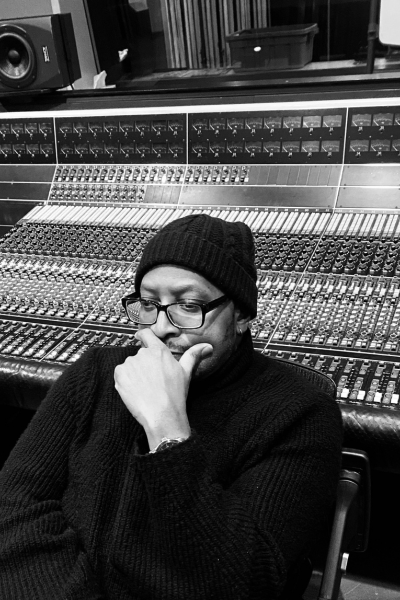Honesty in Discourse
First, let me start by saying this: I’m not mad at white people. Neither do I hate white people. But something vital is missing in our discourse. Our conversations aren’t honest, and I’m not certain they’re framed in ways where they can be honest.
As I sit here in this November of 2024, reflecting on this nation and its choices, it’s clear that we are at a fever pitch. Perhaps we’ve passed the point of no return—where reconciliation, especially in short order, feels almost impossible. Yet, I find myself compelled to wrestle with these ideas. These conversations, both internal and shared, feel like a necessary response to the restlessness and unease following the 2024 election.
Elections and the Illusion of Fairness
Elections are, by design, moments of reckoning. Someone always wins; someone always loses. And with that loss comes disappointment.
I reflect on President Bill Clinton’s words at the 2024 Clinton Global Initiative conference. In a moment of rare candor, he spoke about politics with a clarity few can match. He said, “To be in politics is to know you might lose.” This wasn’t just rhetoric; it was a reflection on his own lived experience.
I carry no illusions about winning. Loss is woven into the fabric of our humanity. Yet, in American culture, there’s an insidious belief that some people deserve to win always. This belief, this entitlement, found its clearest expression in the 45th President of the United States. Even after losing in 2020, he fomented an insurrection, working a mob—not just locally in D.C., but nationally—of people utterly convinced that his loss was impossible.
His rhetoric—that the only way he could lose was through cheating—is emblematic of a broader American condition: the refusal to grapple with failure. It’s not just absurd; it’s corrosive. Loss, as inconvenient as it is, is a universal experience. From sibling rivalries to sporting events, from award shows to unspoken contests for recognition, we all know what it means to come up short. Yet, in this moment, the myth of infallibility has taken on new life, fueled by a culture that mistakes performance for reality.
Americanism as Performance
Americanism is inherently performative—more amusement than entertainment. It’s a spectacle that feeds on shallow domestication, training us to confuse success with applause and empathy with the appearance of care. This culture, so rooted in surface-level narratives, provides the perfect breeding ground for the kind of aloofness that keeps us shackled and oppressed.
In my essays “Loose Lips” and “Repeat This,” I delve into how our public and private conversations are rehearsed, hollowed out, and ultimately ineffectual. We parrot phrases without processing their meaning, creating an echo chamber of empty words. In “When Going High Is Not Enough,” I argue that this shallow performance culture has infiltrated even our most earnest efforts toward justice. Conversations on white guilt and white fragility have been misguided because we misunderstand the heart of genuine empathy.
Our domestication into shallowness has been the perfect breeding ground for pervasive prejudice. It’s not just that we avoid deep conversations; it’s that we’re trained to. We’re taught to prioritize comfort over truth, appearance over substance.
The Dehumanization Written into Law
I’m sitting here thinking about our laws and amendments. It’s profoundly dehumanizing that it had to be written into law that Black people were not merely 3/5 human—that we were, in fact, whole beings deserving of rights. The very need for such amendments is a testament to the systemic devaluation of Black lives.
But a law doesn’t change minds. It can’t erase the prejudices that are endemic in the culture of whiteness. Laws can mandate behaviors, but they can’t instill empathy or understanding. The 13th Amendment abolished slavery, yet the chains took new forms—Jim Crow laws, redlining, mass incarceration. The permission structures of whiteness adapt and persist.
Whiteness has so many permission structures. It grants allowances to ignore, to retreat, to remain unchallenged. It permits the rewriting of narratives to maintain comfort. The fact that laws had to be enacted to affirm the humanity of Black people reveals the depths of dehumanization and the lengths to which whiteness will go to preserve itself.
Whiteness and Its Safe Haven
Let me speak plainly to my white brothers and sisters who are grieving: your sadness over the 2024 election is real, but it is also a luxury. In some states where the Democratic ticket overperformed, those same states failed to elect Kamala Harris—a woman, a Black woman, an Indian woman—to the presidency. What does this say about us? About patriarchy? About the enduring dominance of white, cisgendered male privilege in American culture?
Whiteness offers a haven—a way to retreat into safety, silence, and invisibility. You can walk out your door without anyone knowing who you voted for. You can exist in red states, in red neighborhoods, and be presumed “one of us.” Even in progressive spaces, whiteness protects you from the scrutiny faced by those of us who cannot blend in.
This isn’t empathy. It’s the privilege of distance—the ability to feel without acting, to grieve without sacrificing. And as much as it pains me to say it, this privilege—the capacity to retreat—is part of what makes whiteness so corrosive.
Reckoning with Reality
What I desperately want is for you to understand what whiteness is. No one is asking you to know what it’s like to be Black. That’s not the point. Frogs don’t ask trees to understand what it’s like to be eaten by snakes. Yet, whiteness demands that Blackness explain itself, justify itself, and prove itself—over and over.
To understand whiteness, you must confront its privileges and its harms. You must reckon with the ways it allows you to feign compassion while perpetuating control. Whiteness, as I see it, is deeply invested in protecting itself, often at the expense of everyone else.
And here’s the uncomfortable truth: Whiteness, like American exceptionalism, is a euphemism. It’s a story we tell ourselves to avoid the reality of oppression. You cannot separate it from the laws, policies, and systems that created it. The fact that we needed constitutional amendments to assert the basic humanity of Black people underscores how embedded these issues are. To live honestly as a white person in America is to confront this reality—not to retreat into guilt, but to transform it into accountability.
Freedom and the Illusion of Choice
Carlton Pearson, my mentor, offers a piercing insight here: “A person will never know they’re free from sin until they know they’re free to sin.” Freedom, in its truest sense, is the ability to confront your flaws without being defined by them. But in America, whiteness has been granted the illusion of freedom while avoiding accountability altogether.
Whiteness operates like sin—its power lies in its invisibility, in its taken-for-grantedness. You are free to misunderstand it, to ignore it, to live within its privileges without ever questioning its cost. But just because you’re free to misunderstand doesn’t mean you’re free from consequences. Lies, particularly the lie of American exceptionalism, have a way of imploding. And when they do, the fallout is rarely convenient.
A Call to Action
So, I ask again: What does it mean to live honestly within the framework of whiteness? What does it mean to acknowledge the role of whiteness in shaping not just America, but your identity within it?
I don’t hate you, white people. I don’t dislike you. I love people—including those who identify as white. But love, as I understand it, requires truth. It demands that we set aside the aloofness that keeps us shackled and oppressed. It requires you to confront the privileges you’ve inherited and the systems you unconsciously perpetuate.
If you are riddled with guilt, anxiety, or depression over the state of America, ask yourself: Is this guilt performative? Does it lead to action, or does it justify retreat? Because to retreat—to choose apathy—is to live into an oppressive framework. Whiteness gives you the luxury to do so, safely and comfortably.
Our conversations on white guilt and white fragility have been misguided because we misunderstand what is at the heart of genuine empathy. Empathy isn’t about feeling bad; it’s about understanding and taking action. It’s about dismantling the permission structures that allow prejudice to persist.
Until you confront that truth, you cannot know what it means to be truly free. Laws may change behaviors, but they don’t change hearts or minds. That requires a deeper reckoning—a willingness to delve into the discomfort, to sit with the dehumanizing realities that have been written into our very laws and amendments.
Whiteness has so many permission structures, but perhaps it’s time to revoke them. To dismantle the euphemisms and face the truths they obscure. To move beyond performance and into meaningful action. Only then can we begin to heal the deep wounds that have long festered beneath the surface of American life.




4 replies on “I Don’t Hate White People”
Powerful! The belief that we could legislate hearts and minds allowed America, and whiteness, to attempt to circumvent its history…it’s roots. Because we have not truly, openly discussed and worked towards healing collectively, this is where we are.
This message needs to be sent to local and national papers for publication.
Great read. Thanks for sharing
I enjoyed reading this. This should be shared all over. Thanks Marquis ❤️
This is disertation of AMERICA and MAGA. I think many will say the same thing I am saying “This needs to go NATIONAL” !